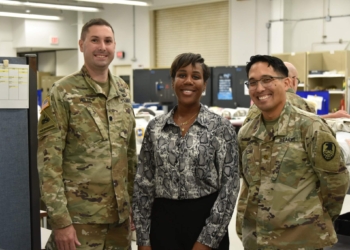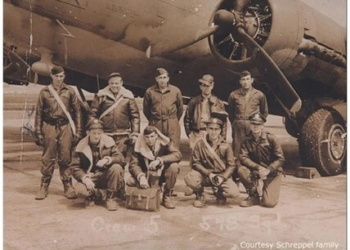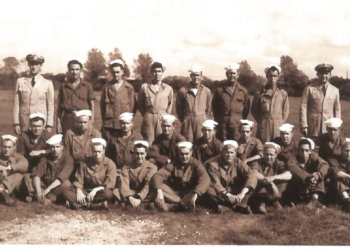The founder of US VetWealth has an approach to veteran employment that looks like jeans and flip-flops among a crowd of suits, but that’s what allows veterans to embark on a successful path to civilian retirement.
Retired Army Maj. Scott Tucker, also a West Point graduate, spent upwards of seven years after his military career learning the finance industry, listening to veteran woes and being told there is only one mold, one path for the veteran workforce. Through that, he learned the one thing everyone was missing: There is another way.
“If you have a mission to serve whether that’s individually or meaning a transitioning service member or spouse wants to go create their own mission, you know, that’s the main purpose of VetWealth — is to live a life of intention,” Tucker said.
Through US VetWealth, Tucker and his team mentor veterans that do not want to be a defense consultant or play by a corporation’s rules. US VetWealth is for people that want total control of what they do and how they go about it.
“This modern economy offers so many more opportunities,” Tucker continued. “I was limited, myself, and spent almost a decade doing something I hated, didn’t resonate with, lost integrity, got really depressed. I had to find a better way.”
US VetWealth is an overarching brand that is evolving and growing but ultimately allows people to identify what they want to be and create their own life’s path.

Take, for instance, 2nd Lt. Mitchell Smith who is the director of business development and also a West Point grad. When he was medically retired early in his Army career due to a shoulder injury, he had exactly two months to redefine himself. As many veterans do, he went to a networking conference.
“Everyone was giving me the same advice,” Smith said. “They were all walking around in suits and handing out resumes or business cards, and that’s just not me. I don’t like the corporate thing. I didn’t want to work 90 hours a week behind a desk. And I always knew that when I left the military, I wanted to have more freedom to make my own decisions about where my life was going to go.”
Then Tucker entered the room wearing jeans and flip-flops. Instinctively, Smith knew he wanted to work for him.
“I knew that I wanted to coach football if I had the opportunity to because the thing I loved most about my experiences at West Point was when I got to mentor somebody, like a younger cadet, and I got to really get to know them and help them grow. And watching them develop was something that really spoke to me,” he said.
If Smith was parked full-time behind a desk, he would not be able to devote time to coaching nor make a living off it. But under Tucker’s tutelage and flexibility in his career, Smith now volunteers as a high school coach and makes a very comfortable living.
“What US VetWealth helped me do is be able to have my ‘day job’ when I’m working and helping veterans and able to monetize some of my skills and something I’m passionate about, but then also have the freedom and flexibility to do something — turn something I thought I would like into something I actually do,” Smith said.
Tucker quickly points to Smith as a leading example as to what US VetWealth is all about.
“He’s able to go create the life he wants,” he said. “And then that just fills me up. Because I always thought, hey, if I’m going to go be a financial advisor, I just hated the idea that I was telling people to save money for some retirement 40 years from now. There’s no motivation for that.”

In the transition to civilian careers, Tucker sees the true opportunity for veterans. He says people should not be afraid of breaking the military mindset of being told what to do and doing what they want. In fact, he quotes following the masses as one of the biggest mistakes a transitioning veteran can make.
“There is a percentage of our community who is being led down that path, and I want to tell them, ‘No, you are a veteran. You’re an individual. This is your chance. You don’t have to follow orders anymore.’”
Tucker warns that being an entrepreneur is not an easy path, but if someone truly wants to fulfill a personal goal, he can help them bring it to fruition by helping them monetize an idea, maximize their military benefits and utilize their resources to fund it.
“We’re not trying to tell, go scream, hit people over the head and say, ‘You need to do this,’” Smith said. “If you don’t want to do what we’re doing, then that’s great, you know? … But if you are somebody that wants the ability to be an entrepreneur or wants the ability to be able to find that ‘dream job,’ then that’s what US VetWealth was created to do.”
Smith equates US VetWealth as being a Yoda to veteran entrepreneurs. The companies born out of Tucker’s need to give veterans control over their own lives are there to guide them — the Luke Skywalker’s — in being heroes of their own story.
“At the end of the day, it’s about leveraging money and resources that tap in, to serve with intention and find your life’s purpose, whatever that might be or however long it might take,” Tucker said. “But I don’t want people getting stuck in a career or job of mediocrity. We’re the biggest risk that’s occurring these days.”







































